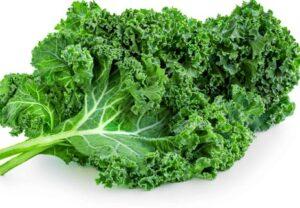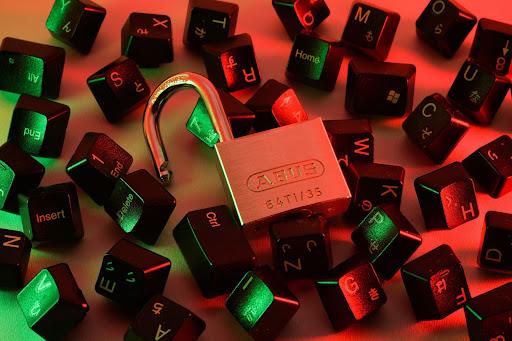
Among the healthiest vegetables, kale is one. It has vitamins, minerals, iron, and all the nutrients that dogs need. But can dogs have kale?
Luckily, dogs can enjoy the benefits of kale like us. It has no toxins, but only nutrients. You may add this veggie to your dog’s meal occasionally, in small quantities. Also, make sure his vet knows about it so that he doesn’t have to face any unwanted side effects.
In order to best benefit your dog from eating kale, exercise some caution. This article will relate to all of them.
Table of Contents
Can Dogs Have Kale?
Kale is a leafy vegetable that belongs to the cruciferous family. It is as healthy as broccoli, spinach, cauliflower, etc. If your dog eats a few amounts of kale, he can enjoy many nutrients. Such as vitamin A, vitamin B6, vitamin C, vitamin K, magnesium, calcium, potassium, copper, iron, manganese, and phosphorus.
Whether it is about reducing cancer risk, improving bone health, muscle health, eye health, etc., Kale does it all. Well, dogs can only reap its health benefits when they have kale in the right amounts and in the right way.
Benefits Of Having Kale For Dogs
Eating kale in the right way and moderate amounts can give many health benefits to dogs. For example, it is rich in vitamin A, vitamin C, and vitamin K. Vitamin A can support your dog’s vision and growth. Again, its beta-carotene, in the form of chlorophyll, will protect him from oxidative damage.
The vitamin C present in kale can be responsible for dogs’ health, coat, skin, and immune system. It also includes anti-inflammatory properties and antioxidants such as zeaxanthin and lutein. The antioxidants will protect them from free radicals and the risks of cancer. Besides, its anti-inflammatory properties will work like an immune booster.
The vitamin K in this veggie can help canines with their bone health and prevent internal bleeding. Along with vitamins, kale has some essential minerals like potassium, magnesium, calcium, and iron. Potassium will maintain your dog’s fluid level, and magnesium will regulate his blood sugar level and nervous system. Again, calcium will promote his bone health, and iron will manage his haemoglobin level.
Kale has good amounts of fibre that can keep a dog’s digestive system healthy. To treat their constipation or regulate their bowel movement, this veggie can be a good option.
Risks Of Having Kale For Dogs
Along with its benefits, kale can somewhat be responsible for giving side effects to dogs. For example, kale has high amounts of isothiocyanate and calcium oxalate. They form in vegetables naturally and are considered toxic compounds for dogs.
When a dog eats too much kale, he is taking too much of the calcium oxalate. This can cause kidney and bladder stones. And if a dog is already dealing with kidney stones, eating kale can worsen his condition.
Humans are fans of the molecule isothiocyanate, as it cures cancer, but dogs can’t get this benefit from this molecule. In fact, isothiocyanate is responsible for dogs’ gastric irritation and other digestive problems. The symptoms can be vomiting, diarrhoea, stomach pain, etc.
Another risk associated with kale for dogs is an allergic reaction. It is human food, so all dogs can’t stand it. If your dog has a problem with veggies, eating kake can lead to skin issues like irritation and rashes.
How To Offer Kale To Dogs?
The kale that you will feed your dog must be fresh and organic. Then wash it thoroughly to remove bacteria and parasites. You can serve it raw to your dog, but after making small pieces of it.
If he has digestive issues, you can steam or boil the kale to make it tender. If you want a more digestible treat, you can blend the steamed or boiled kale. This will create a puree form of this veggie.
How Much Kale Can Dogs Have?
According to vets, dogs should not consume humans’ healthy treats for more than 10% of their diet. It means kale should be a small portion of their meal.
For an extra-small breed, half a teaspoon of boiled, steamed, or pureed kale is fine. For a small breed, one teaspoon of kale will be sufficient. Again, medium breeds can go with two teaspoons, and large breeds can have three teaspoons. Lastly, extra-large dogs can eat up to four teaspoons of kale.
When Can Dogs Have Kale?
Since kale has some downsides, you must maintain safety concerns while feeding it to your dog. As said earlier, this veggie has calcium oxalate, which can cause kidney stones. It means dogs dealing with kidney diseases must avoid it. Also, it has isothiocyanate, which won’t be good for a dog with an irritated gut.
Kale is high in fibre, which can worsen a dog’s condition when dealing with an upset stomach. Also, it can be dangerous for dogs with thyroid issues.
We know allergic dogs cannot eat kale. So make sure your dog is free from allergens. Even if he puts a tick on all requirements to eat kale, ask his vet first if the consumption would be right or not.
Frequently Asked Questions: Can Dogs Have Kale?
Can dogs eat kale every day?
Kale falls under the category of human foods. Hence, you should include it in your dog’s diet occasionally, in moderation.
Is kale safe for dogs?
Kale is safe for dogs as long as they eat it within 10% of their daily diet. Also, it can be safe for dogs who lack vitamins and minerals. And antioxidants.
Is raw kale good for dogs?
Raw kale won’t cause any health issues for dogs if they are not struggling with digestive issues. But if you want to keep your dog on the safe side, offer him cooked kale.
What can dogs have—kale or spinach?
Both kale and spinach are safe for dogs in small quantities if they are not allergic to them. In fact, these vegetables offer numerous health benefits and are loaded with vitamins and minerals.
Final Verdict
No doubt, kale can sometimes pose health threats to dogs. That’s why we may think twice: Can dogs have kale? The answer is yes, but the amount should be less, and the dog should not be allergic, have kidney diseases, or have thyroid issues. He should also have his vet’s approval.
Whenever you feed raw kale to your dog, don’t forget to wash it properly. Or else, the bacteria can disrupt his GI tract. Again, after cooking the kale, don’t add any salt, spices, or seasonings. These can give dogs as hazardous reactions as they would get from eating too much kale.
Meet Rohan, a friendly lifestyle blogger who finds joy in writing captivating content and immersing himself in the world of movies and entertainment. Along with writing, he loves painting and trying out DIY projects. Join Rohan on his vibrant blog to explore the best of lifestyle and entertainment.
RELATED ARTICLES
Latest Articles
 Unlocking Success: Mastering Bank PO Interview PreparationIn EducationApril 24, 2024For banking careers, PO interviews stand as formidable […]
Unlocking Success: Mastering Bank PO Interview PreparationIn EducationApril 24, 2024For banking careers, PO interviews stand as formidable […] The Strategic Value of Purchasing FontsIn TipsApril 18, 2024In today’s visually driven world, fonts are more […]
The Strategic Value of Purchasing FontsIn TipsApril 18, 2024In today’s visually driven world, fonts are more […] Revolutionizing Business: How AI Transforms Customer Experience in the Inflatable IndustryIn BusinessApril 16, 2024Inflatable water slides are the epitome of summer fun, […]
Revolutionizing Business: How AI Transforms Customer Experience in the Inflatable IndustryIn BusinessApril 16, 2024Inflatable water slides are the epitome of summer fun, […] Most Asked Microservice Interview Questions For 2024In TechnologyApril 2, 2024To keep up with changing trends in the tech industry […]
Most Asked Microservice Interview Questions For 2024In TechnologyApril 2, 2024To keep up with changing trends in the tech industry […] Best JavaScript and CSS Library In 2024In TechnologyApril 2, 2024With the ever-expanding functionality of web […]
Best JavaScript and CSS Library In 2024In TechnologyApril 2, 2024With the ever-expanding functionality of web […] Front-End Development Trends to Follow in 2024In TechnologyApril 2, 2024For better engagement, the front-end development of […]
Front-End Development Trends to Follow in 2024In TechnologyApril 2, 2024For better engagement, the front-end development of […] Simplifying Mealtime: Meal Prepping for a Family of FourIn UncategorizedMarch 22, 2024In the hustle and bustle of daily life, planning and […]
Simplifying Mealtime: Meal Prepping for a Family of FourIn UncategorizedMarch 22, 2024In the hustle and bustle of daily life, planning and […] How to Freeze Dry Candy With And Without a Machine?In FoodFebruary 27, 2024A candy lover constantly searches for novel and […]
How to Freeze Dry Candy With And Without a Machine?In FoodFebruary 27, 2024A candy lover constantly searches for novel and […] How to Get Something Out Of Your Eye Immediately?In healthFebruary 27, 2024Getting something inside your eyes can be frustrating […]
How to Get Something Out Of Your Eye Immediately?In healthFebruary 27, 2024Getting something inside your eyes can be frustrating […] The Evolution of Remote Control Technology: From RC Cars to DronesIn TechnologyFebruary 22, 2024Remote control technology has come a long way since […]
The Evolution of Remote Control Technology: From RC Cars to DronesIn TechnologyFebruary 22, 2024Remote control technology has come a long way since […] Unveiling the most popular carnival costumes: A colorful parade of creativityIn FashionFebruary 19, 2024In the world of festivities and merrymaking, few […]
Unveiling the most popular carnival costumes: A colorful parade of creativityIn FashionFebruary 19, 2024In the world of festivities and merrymaking, few […] Custom GPTs: The Next AI Opportunity for BusinessesIn Business, TechnologyFebruary 14, 2024The rise of artificial intelligence has transformed […]
Custom GPTs: The Next AI Opportunity for BusinessesIn Business, TechnologyFebruary 14, 2024The rise of artificial intelligence has transformed […]
stopie.com is a participant in the Amazon Services LLC Associates Program, an affiliate advertising program designed to provide a means for sites to earn advertising fees by advertising and linking to Amazon.com.
Clicking on an Amazon link from stopie.com does not increase the cost of any item you purchase.
We will only ever link to Amazon products that we think our visitors may be interested in and appreciate learning more about.





